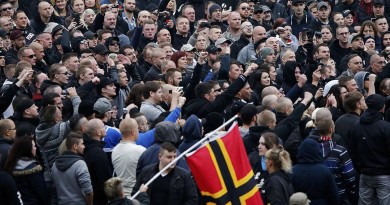Shadow of Protests Continues to Haunt Hong Kong
By Felipe Bueno
Staff Writer
It has been a year since protesters took to the streets of Hong Kong, and the question of just how effective these protests were is still on the minds of many. The umbrella protests, or the umbrella movement, were a series of sit-in protests that began on September 22, 2014 when students led a strike against the decision of the National People’s Congress Standing Committee (NPCSC) regarding electoral reforms. The movement was so called because of the umbrellas protesters used to protect themselves against the police force’s tear gas.
This decision garnered overwhelming criticism, as it limited whom citizens could vote for in the elections for Chief Executive of Hong Kong. By limiting the candidates, the government of Beijing would have more control over Hong Kong, adding tension to relations between the autonomous region and the mainland, and casting doubt over the principle of “one country, two systems.”
As the Wall Street Journal reports, politics in Hong Kong have been at a standstill since the event and many question if it had any lasting impact. 33-year-old graphic designer Lo Hong-kit argues, “A year has passed, nothing has changed, and in fact it’s getting worse.”
Even though the protests are no longer occurring, ex-protesters have left notes and banners reminding the government not only of last year’s events, but also their unresolved dissatisfaction with Beijing’s interference. The Los Angeles Times reports that Joshua Wong, who spearheaded the umbrella movement, has called the protests a failure.
Some see this as further proof of China’s domination of the Hong Kong government, and as a precursor to democratic Hong Kong’s inevitable integration into mainland China. When Hong Kong was surrendered to China by Great Britain in 1997, Beijing promised autonomy and little interference for 50 years. This meant that Hong Kong would adopt a communist system like mainland China by 2045, guaranteeing that the “one country, two systems” policy would not last.
Others, however, consider this movement a victory. The legislation to allow Beijing to screen candidates was not passed, and Hong Kong was allowed to proceed with elections as usual. While Wong himself has, in an interview with Time Magazine, called the movement futile, he believes that if these democratic views persist, there may be hope of amending the 1997 constitution, and maybe delaying or even stopping the integration altogether.

